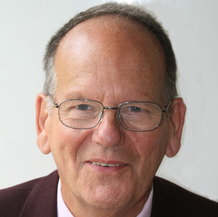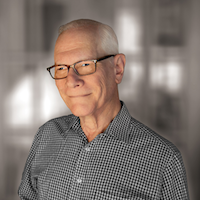
A Conversation with Nick Heap – Facilitator of Change and Learning
From time to time, we reach out to experts in their field to better understand how Mr. Simon can aid those who are seeking help, guidance and direction in their personal job-hunting journeys. Today we are speaking with Nick Heap who is best described as a facilitator of change and learning. Nick has built an internationally recognized consulting business to help both organizations and individuals achieve their full potential and thrive in a changing world.

Nick’s unique approach to career counseling, executive coaching, facilitation, time management and teamwork reflect the skills he brings to problem solving at both personal and corporate levels. He has over forty years of successful experience working with many organizations and individuals, helping them discover what they do well and to develop confidence and trust in themselves to excel.
I invite you to sit in on my conversation with Nick. As we will learn from our discussion, he is a proponent of a technique called Core Process that focuses on helping individuals to discover the essence of who they are. Once this has been established they are able to present themselves to the rest of the world in a stronger more positive light.
We are going to learn much more about Core Process and how it will help you to be a better/stronger candidate for that next job opportunity, but first let’s find out a bit more about Nick and how he came to prominence in his field of expertise.
Please Note: at several key points throughout this article we will stop to insert an important takeaway from our conversation with Nick.
Stuart Weiner: So Nick, why don’t you tell me a bit about your background. How did you get started on your unique approach to helping people and companies find their way.
Nick Heap: Well Stuart, I was originally a scientist with a PhD in Chemistry from Birmingham University in England. After a few years studying and working in the U.S. at the University of Chicago, my wife and I moved back to the UK where I was recruited by a great company called Imperial Chemical Industries (ICI). It became apparent during my first few years there that most young scientists, myself included, tended not to work with others very much. At the time, the need to collaborate and work with others was not clearly recognized by many of us. The company identified this as a problem and initiated a series of training sessions focused on sensitizing us to the impact we had on one another. The most powerful thing I learned from the training was the realization that we could solve many of the problems we had in the industry if we just listened to each other.
Shortly after my training I had the life-changing insight that we could solve all the problems in the world if we listened to each other. It also became my job at ICI to fix this!
SW: So, you started out as a PhD scientist in the chemical industry and based on what you are doing today, you seemed to have left that career far behind you. When and how did this change take place?
NH: As I said, ICI had recruited me to be a scientist, but I really wanted to change my job to something involving listening to people and helping them listen to each other. I was able to convince management I was serious and prove that I could take on this role. Luckily, an opportunity came up to serve on a “temporary task force” of people across the lab on Career Development. I contributed, learned a lot and wrote a draft report on our findings. (This was written deliberately as a rough draft so we could ask the people who had to approve it how to make it better!)

Takeaway # 1
Listening to each other is a vital part of teamwork which inevitably leads to meeting goals and achieving success! As Nick sees it, one of the biggest impediments to solving problems at both the micro and macro level is the fact that we don't listen to each other, and we need to fix that before we can fix any of the issues we face.
NH: The thing that was a bit special about my experiences at my company was I felt as though I was actually being told to get on with it, that this was my job! They wanted me teaching and facilitating others to work together to solve problems and meet goals. And starting 50 odd years ago I took those instructions to heart and did just that. I don’t feel as though I have fully finished the job, however because we're still not listening to each other quite as well as we might.
SW: So Nick, why don’t you tell us more about how you came to turn your passion into your consulting business.
NH: It had taken me a few years to persuade ICI that I was serious about my new role as facilitator, and it became the focus of my work with them for the next 6 years. They trained me in listening and influencing, coaching and counseling and working with groups in organizational development and process consultation and I became involved in all sorts of interesting stuff.
During that time I also spent a year volunteering as a Samaritan listening to potentially suicidal people and was selected for the Marriage Guidance Council, an organization that helps troubled couples. Those experiences and the knowledge I gained from my roles with them helped me to better understand how to help others to solve their problems.
Around 1980, I was made redundant because the company was reorganizing. I looked carefully at what I had been doing for the company over the years and was pretty sure that I didn’t want to travel, I didn’t want to commute. I didn’t want just another job. I had built up a strong background in coaching, counseling and facilitating at work and thought this is where my strengths lay. Perhaps working for myself using the stuff that I'd learned was the better way for me to go.
Takeaway # 2
When you leave a job, whether it is on your own or due to circumstances outside of your control, remember you have a combination of skills and experiences that are unique to you. These form the essence of who you are and what you bring to you next role.
NH: Using the severance pay the company gave me, I set out on my new journey, starting a consulting business based on much of what I had learned over the previous 6 years. I offered services to companies and groups and individuals as a facilitator of change, organizational development and communication.
SW: Tell me more about the subject of organizational development.
NH: Organizational development is a systematic process for helping organizations function better. People approach it in many, many different ways. My approach is to act as a catalyst for change. Too many outside specialists are hired by a company, spend a week or two finding out how the company operates and what people do. Then they write a report telling them what they need to do and expect them to do it. That approach rarely leads to a successful outcome.
The way I see it is to listen to people, encouraging and helping them to have things the way they want them to be. Quite often what actually happens in organizations is that people have never really sat down and said, “what do we want?”
You know what? It really helps when you ask a question like that. It gets people talking, thinking and planning. The ideas and changes are their own. I am merely the agent that helps facilitate the changes that need to be made by helping people to listen to each other.
SW: So your main focus has been working with companies, organizations and groups to help them solve their problems, not by trying to give them the answers but by encouraging them to listen to each other and use the ideas each one brings to the table in order to arrive at their own answers. It appears that this is a very effective approach to problem solving.
NH: You are right, Stuart. It took me years of work and study in this field to reach a certain level of expertise to do this job. So much of what I learned and experienced are detailed on my website https://www.nickheap.co.uk/nick-heap/. I know that you are familiar with the website, and I invite your readers to look at the many stories, tips, blogs and videos available for free that will give them a good idea of the scope of the work I have done over the years.
Takeaway # 3
Those involved in a job search should take every opportunity to learn all they can about subjects that will help them through their transition. Even if it might not seem related to your personal situation, check out helpful resources, like Nick’s website. They provide insight and information that you may not have previously thought of as important to you situation.

NH: Never miss an opportunity to learn something new. Sites like mine offer you the chance to do some self-analysis and to think about how your personal story is a huge part of how you want others to see you.
SW: Speaking of personal stories, earlier in our conversation we touched on your work with individuals. I am sure that our readers would like to learn more about this aspect of your work, especially those that are currently involved in their own job search. This is what Is known as Core Process, is that right?
NH: That’s right Stuart. Before I explain the concept behind Core Process and how it works, let me clarify for your readers that this technique is different from the concept of core processes for individuals. These are the key routines, habits, and activities that many of us use for personal and professional development, such as daily planning, time management, health and wellness, relationship building, etc.
The Core Process technique that I practice is a story-based tool that I will explain in more detail shortly. First you should understand that the discoverers of Core Process were initially focused on the Systems Theory of Management when they invented Core Process. Systems Theory views an organization as a complex system comprised of many subsystems all working towards a common goal or mission in order to be successful. They wondered if this could be applied to an individual.
And so they developed a method to help a person figure out what their mission and purpose is, which also happens to be their unique talent as well.
Here is how Core Process works and what makes it unique.
• The Core Process facilitator starts by asking the client to tell a story about a time in their life when they felt really alive and fulfilled. It could have been an active process such as a time when they did a piece of work that went brilliantly, or they gave a talk, or organized an event. Or it could have been a passive thing. For instance, they could have been just sitting under a tree and thinking one day, and everything just fell into place and felt perfect to them.
• Then the facilitator says to the client “You were telling me about that time when you did that piece of work, (or other experience) and it was wonderful. I'd like you to give me a list of 10 - 12 words that you associate with this experience. They should be “doing” words such as listening, learning, worrying, studying, inventing, cooperating, words like that.“
• The facilitator then asks the subject for “… a list of concrete and abstract words. These can include words such as people or tree, or they could be hope or happiness or joy or trust or creativity or something specifically associated with this experience.”
• The two lists are then written down on a sheet of paper in two columns, side-by-side, and the client is asked to look at all those words and select the three words they like best from each column.
• Lastly the client is asked to refine the three words from each column into a pair of words (one from each column) that they get excited about.
SW: So what happens next? In what way does this exercise help the client?
NH: The process is very organic, it's cooperative, and it's fun for both parties, because up to that point, neither the facilitator nor the client knows what they are going to come up with. But at the end, if you come up with a strong two-word phrase, the client often feels it physically, and says, “Oh, gosh, that's me. I can see how that fits in with other times in my life when I've been feeling great. And that isn't just what I do well, it's actually my purpose, it's my job.”
There are literally hundreds of two-word phrases that come from this exercise. Things like “lighting fires,” “growing life,” and “creating awareness.” Creating Awareness, which is my two-word phrase, by the way, is what I am doing right now as we have this discussion. I'm trying to help you be aware of some of these ideas. I help people as well as organizations to be aware that they can have things differently from where they thought they could, that there are more possibilities than they ever thought of.
The theory behind Core Process is it discovers not just what you're good at, but what you're uniquely good at. The bottom line is that each of us is wired up slightly differently. There aren't two Nick Heaps, there aren't two Stuart Weiners.
So to reiterate, if you're really good at something, this process helps you discover what you're really good at and that somebody will want it. Discover what you're uniquely good at, and there will be a market for it. And that hits the nail right on the head!
Takeaway # 4
Although Nick works directly with clients using the Core Process story-based tool, he only has a limited number of client-facing slots available (see his web site for details). However, the Core Process concepts, and guidance are available to anyone wishing to try this approach. The tool and many other ideas and approaches are found on his website, and you are encouraged to look them over for yourself. Working alone or with a friend/work search partner, try the techniques shown and apply them to yourself and to your situation. Contact Nick if your organization would like to offer Core Process to a group of people. It is easy to teach you how to do it online and then to take each other on this exciting journey.
NH: Most of us are very familiar with the elevator speech, which is a 30 second encapsulation of what you are and what you do, so that if you happen to encounter the CEO in the elevator, you've got that much time to present yourself to them. It is what you’re all about in terms of what kind of job you have, or what you know best to let them know why you should be considered for the job they're looking to fill. I recommend, however, that we reconsider some of what we put into the elevator speech or how we put it together.
SW: I agree that the elevator speech has long been considered an important tool in the job seekers toolbox. I have not always been a big fan of them because sometimes they only seem to tell the other person what you do for a living. Saying in so many words, “I’m an accountant and if you need an accountant, I can do a good job for you” does not really get to essence of what the CEO would want to know about the person they are speaking to and if it matches what they might be looking for. Nick, what changes do you recommend?
NH: Well, firstly I think that people don’t often remember what you say but they do remember how you make them feel. If you make a good connection first and then make your pitch, they are more likely to recall their encounter with you. Be sure to smile, introduce yourself and say something like, “How are you today?” Obviously, you will mention your occupation, but more importantly, you want them to know what kind of person is behind the job that you know how to do. Knowing yourself is critical, and Core Process is just one way of knowing yourself. Take for instance the accountant we mentioned earlier. If he or she went through the Core Process exercise, they would be able to add their own self-assessment to the encounter. They would want to let the other person know that they are more than just someone who knows accounting. Equally as important to knowing accounting is being someone that can be trusted, who is reliable and responsible and can be counted on to always function at the highest level of integrity.
SW: I understand what you mean, Nick. When I went through the Core Process with you a few weeks ago, I was able to create my own two-word phrase, “Inspiring Trust.” As we discussed, this phrase is unique to me and helps to form how I see myself and how I want others to see me. I would want to make this a part of my elevator pitch so when I have only 30 seconds or so to tell someone about me and what I would bring to the job, I am sure to use my phrase to help me make my pitch.
NH: That’s right, Stuart. Knowing yourself is critical. And Core Process is an important way of knowing yourself. You would want to emphasize to the other person that you bring more than a job-related skill to the position you are interested in. You bring a sense of trust, of integrity and reliability that inspires them to consider you for the job.
To go beyond the elevator pitch, your two-word phrase, which is the essence of who you are, should be with you at all times. When you are networking on the phone or in person it should come through, when you meet with a recruiter or hiring manager, believe me your two-word phrase should always be part of your presentation.
SW: Nick, this has been a wonderful conversation, filled with insight and helpful ideas. Any last thoughts for our readers on the job seeking process.
NH: My final thought is that searching for your next job opportunity can be a really lonely business and no one should do it alone. Use your network and if you don’t have one, develop as many networking partners as you can to help you all along the way. These connections enable you to talk to and especially to listen to each other. This is how you learn to do a better job of finding a job. In addition, make use of great web sites such as Mr. Simon for ideas and to practice for job interviews.
Final Takeaway
Knowing yourself is one of the most important factors in finding your next job. You are unique. As Nick said there is only one Nick Heap just as there is only one YOU. Your specific traits such as your personality, attitude, experiences and skills distinguish you from everyone else. You want your uniqueness to stand out in every job interview so that you are thought of as someone who has the ability to do the job.
You don't have to be alone in your job search!
Mr. Simon invites you to join the Friends of Mr. Simon Meetup Group that supports both individuals seeking their next job role and working professionals. Members of our network come together to learn and practice new skills and network with others through our regular interactive events where they establish meaningful connections and have a chance to promote their personal brand and stand out in the marketplace.
Group membership is free of charge, courtesy of Mr. Simon.
Join our Friends of Mr. Simon Meetup Group to become part of our growing and supportive community!
